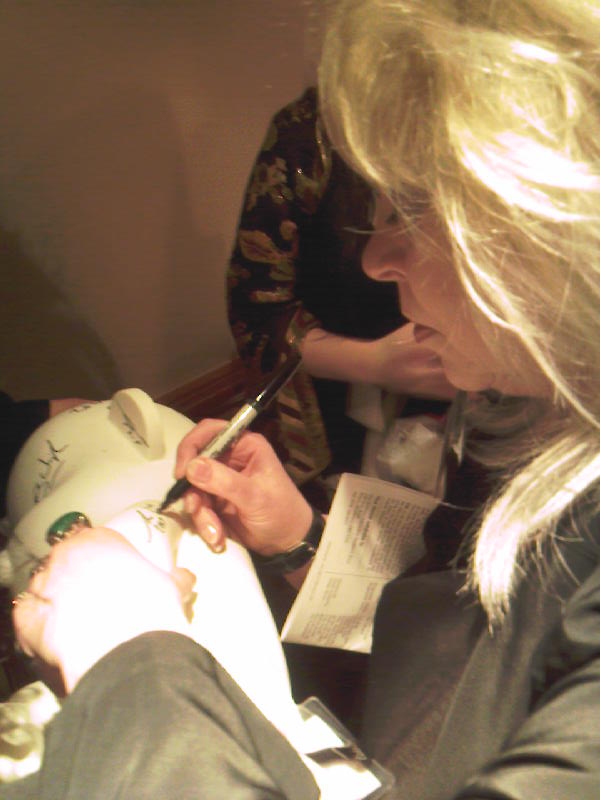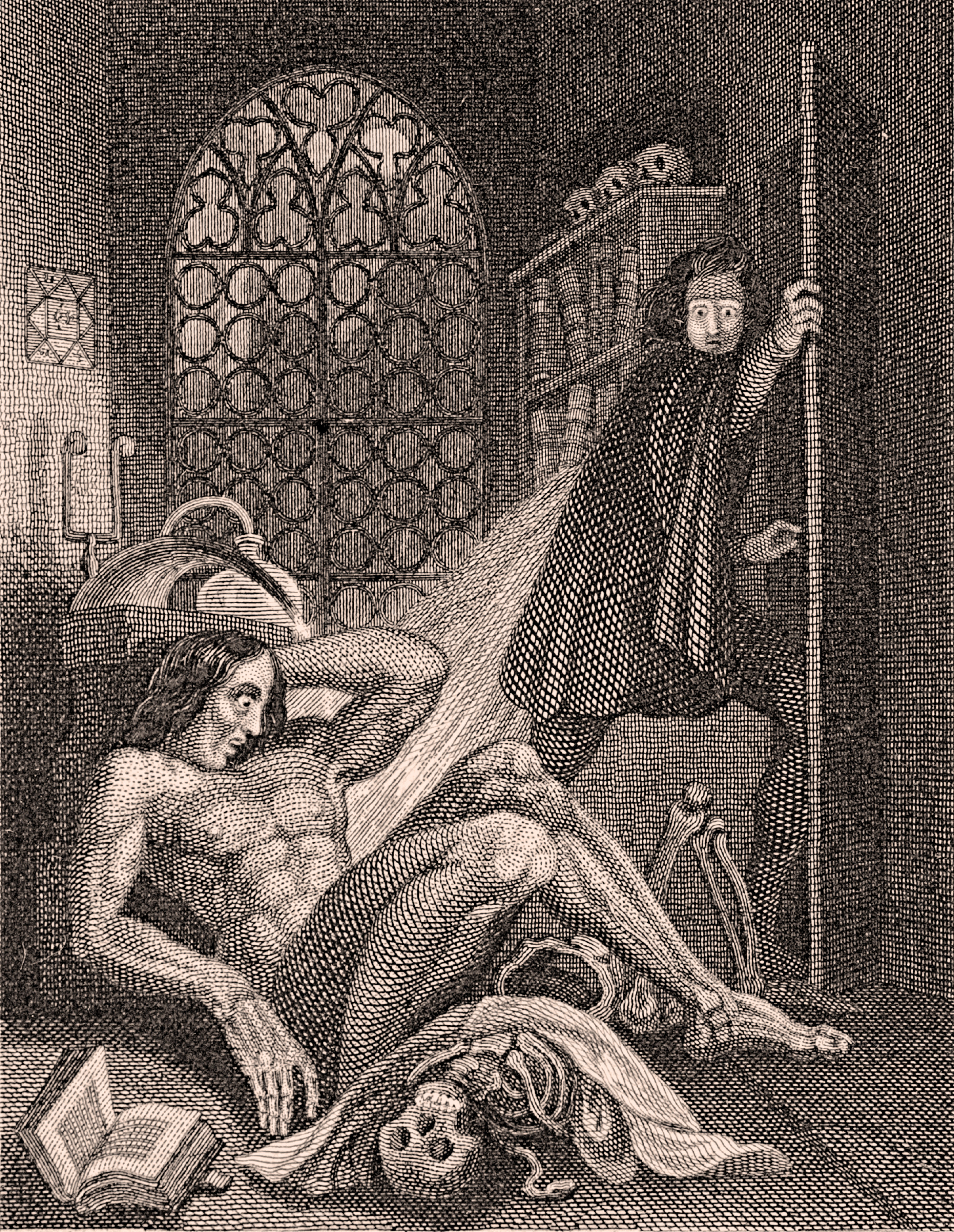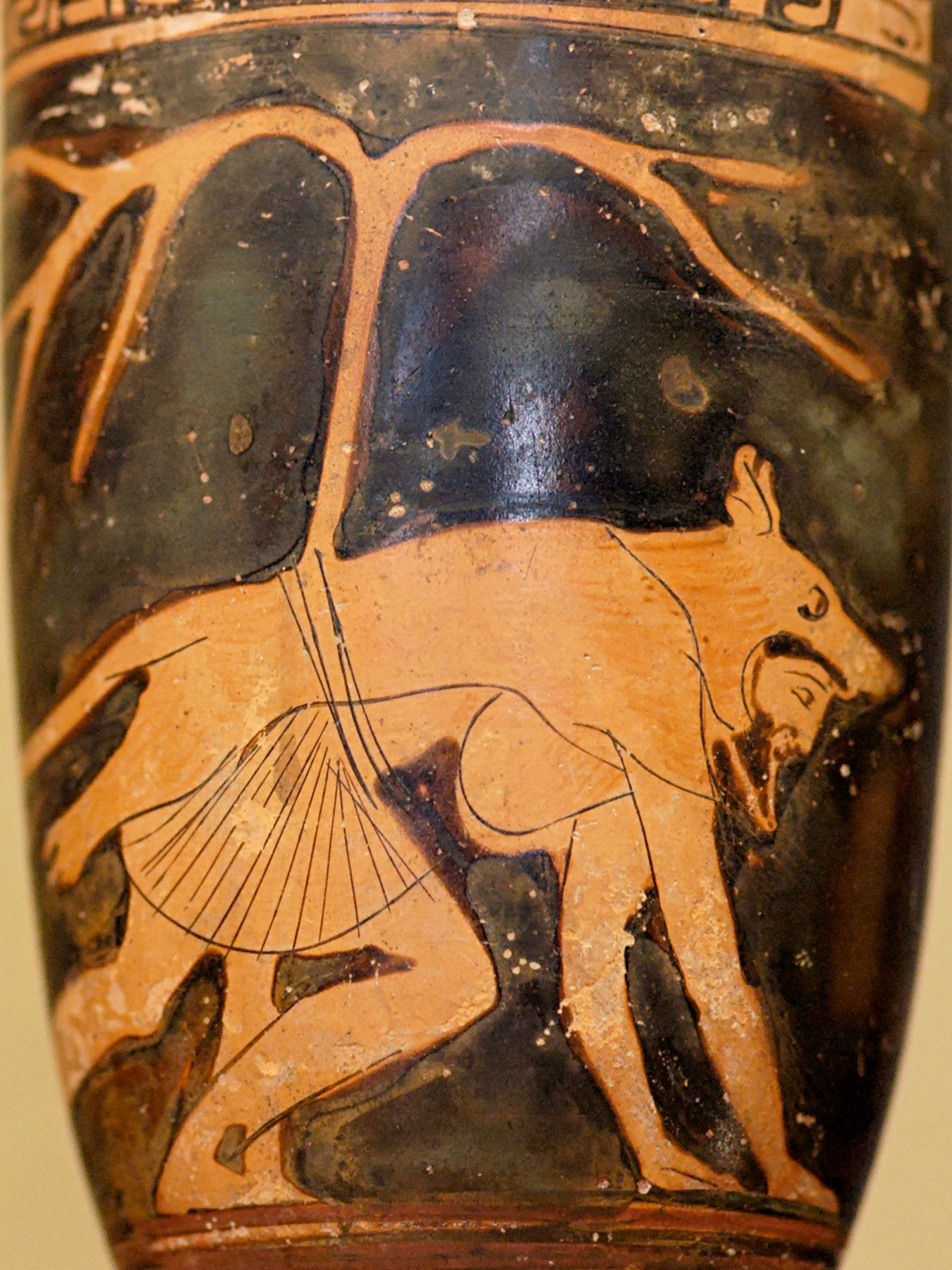|
Tanith Lee
Tanith Lee (19 September 1947 – 24 May 2015) was a British science fiction and fantasy writer. She wrote more than 90 novels and 300 short stories, and was the winner of multiple World Fantasy Society Derleth Awards, the World Fantasy Lifetime Achievement Award and the Bram Stoker Award for Lifetime Achievement in Horror. She also wrote a children's picture book (''Animal Castle''), and many poems. She wrote two episodes of the BBC science fiction series ''Blake's 7 (Sand'' and ''Sarcophagus)''. She was the first woman to win the British Fantasy Award best novel award (also known as the August Derleth Award), for her book '' Death's Master'' (1980). Biography Early life Tanith Lee was born on 19 September 1947 in London, to professional dancers Bernard and Hylda Lee. Despite a persistent rumour, she was not the daughter of Bernard Lee (the actor who played "M" in the James Bond series films between 1962 and 1979). According to Lee, although her childhood was happy, she was ... [...More Info...] [...Related Items...] OR: [Wikipedia] [Google] [Baidu] |
Alzheimer's Research Trust
Alzheimer's Research UK (ARUK) is a dementia research charity in the United Kingdom, founded in 1992 as the Alzheimer's Research Trust. Alzheimer’s Research UK funds scientific studies to find ways to treat, diagnose and prevent all forms of dementia, including Alzheimer's disease, vascular dementia, dementia with Lewy bodies and frontotemporal dementia. As of 2024, Alzheimer's Research UK has funded 1,275 research projects across the UK and internationally, and has committed more than £237 million to dementia research. Alzheimer's Research UK is a member of the Association of Medical Research Charities. History In 1998, the trust awarded its first major grant of £500,000 to a team led by distinguished scientist Dr Michel Goedert in Cambridge. In March 2008, author Terry Pratchett, who had the disease, donated one million US dollars to the trust. In February 2010, the Alzheimer's Research Trust released the Dementia 2010 report, revealing new evidence of the prevalen ... [...More Info...] [...Related Items...] OR: [Wikipedia] [Google] [Baidu] |
Prendergast School
Prendergast School is a girls' secondary school and sixth form located on Hilly Fields, Brockley, in the London Borough of Lewisham. It is part of a multi-academy trust. The school motto is from Chaucer's Prologue to ''The Canterbury Tales:'' "Trouthe and Honour, Fredom and Curteisye". (In Middle English and in this context, "fredom" is generosity, not liberty.) History Prendergast Grammar School was founded as a fee-paying grammar school in Rushey Green, Catford in 1890 under the will of the late Dr. Joseph Prendergast, DD ( Cantab), 1791–1875, Headmaster of Colfe's School 1831–1857. His endowment was supplemented from several quarters, including some ancient charities associated with the parish of Lewisham. In the first half of the 20th century the school accepted an increasing number of scholarship girls from LCC Elementary schools. Following the Education Act 1944, the school became a maintained grammar school with voluntary aided status. In the 1970s, with the ... [...More Info...] [...Related Items...] OR: [Wikipedia] [Google] [Baidu] |
Jack Vance
John Holbrook Vance (August 28, 1916 – May 26, 2013) was an American mystery, fantasy, and science fiction writer. He also wrote several mystery novels under pen names, including Ellery Queen. Vance won the World Fantasy Award for Life Achievement in 1984, and he was a Guest of Honor at the 1992 World Science Fiction Convention in Orlando, Florida. The Science Fiction and Fantasy Writers of America made him its 15th SFWA Grand Master, Grand Master in 1997, and the EMP Museum#Science Fiction Hall of Fame, Science Fiction Hall of Fame inducted him in 2001, its sixth class of two deceased and two living writers. His most notable awards included Hugo Awards in 1963 for ''The Dragon Masters'', in 1967 for ''The Last Castle (novella), The Last Castle'', and in 2010 for his memoir ''This Is Me, Jack Vance!''; the Nebula Award in 1966, also for ''The Last Castle''; the Jupiter Award (science fiction award), Jupiter Award in 1975 and the World Fantasy Award in 1990 for ''Lyonesse: M ... [...More Info...] [...Related Items...] OR: [Wikipedia] [Google] [Baidu] |
Tales From The Flat Earth
''Tales from The Flat Earth'' is a fantasy series by British writer Tanith Lee. The novels take inspiration from ''One Thousand and One Nights'' and are similarly structured as interconnected stories. The series has been well received, and ''Death's Master'', the second book in the series, won the British Fantasy Award for Best Novel in 1980. Works in the series Novels and collections *''Night's Master ''(1978; nominated for the World Fantasy Award for Best Novel, 1979) *'' Death's Master'' (1979; British Fantasy Award for Best Novel, 1980) *'' Delusion's Master ''(1981) *'' Delirium's Mistress'' (1986) *'' Night's Sorceries ''(1987; nominated for the World Fantasy Award for Best Anthology/Collection, 19881988 World Fantasy Award Winners & Nominees. . Retrieved on 2013-07-16.) *'' The Earth is Flat'' (2023) Short stories *"I Bring You Forever" (1998) *"The Man Who Stole the Moon" (2001) *"The Origin of Snow" (2002) *"The Snake" (2008) *"The Pain of Glass" (2009) *"Our Lady of ... [...More Info...] [...Related Items...] OR: [Wikipedia] [Google] [Baidu] |
Gothic Fiction
Gothic fiction, sometimes referred to as Gothic horror (primarily in the 20th century), is a literary aesthetic of fear and haunting. The name of the genre is derived from the Renaissance era use of the word "gothic", as a pejorative to mean medieval and barbaric, which itself originated from Gothic architecture and in turn the Goths. The first work to be labelled as Gothic was Horace Walpole's 1764 novel ''The Castle of Otranto'', later subtitled ''A Gothic Story''. Subsequent 18th-century contributors included Clara Reeve, Ann Radcliffe, William Beckford (novelist), William Thomas Beckford, and Matthew Gregory Lewis, Matthew Lewis. The Gothic influence continued into the early 19th century, with Romantic works by poets, like Samuel Taylor Coleridge and Lord Byron. Novelists such as Mary Shelley, Charles Maturin, Walter Scott and E. T. A. Hoffmann frequently drew upon gothic motifs in their works as well. Gothic aesthetics continued to be used throughout the early Victorian li ... [...More Info...] [...Related Items...] OR: [Wikipedia] [Google] [Baidu] |
Horror Fiction
Horror is a genre of speculative fiction that is intended to disturb, frighten, or scare an audience. Horror is often divided into the sub-genres of psychological horror and supernatural horror. Literary historian J. A. Cuddon, in 1984, defined the horror story as "a piece of fiction in prose of variable length... which shocks, or even frightens the reader, or perhaps induces a feeling of repulsion or loathing". Horror intends to create an eerie and frightening atmosphere for the reader. Often the central menace of a work of horror fiction can be interpreted as a metaphor for larger fears of a society. History Before 1000 The horror genre has ancient origins, with roots in folklore and religious traditions focusing on death, the afterlife, evil, the demonic, and the principle of the thing embodied in the person. These manifested in stories of beings such as demons, witches, vampires, werewolves, and ghosts. Some early European horror-fiction were the Ancient Greeks and Ancie ... [...More Info...] [...Related Items...] OR: [Wikipedia] [Google] [Baidu] |
Fantasy
Fantasy is a genre of speculative fiction that involves supernatural or Magic (supernatural), magical elements, often including Fictional universe, imaginary places and Legendary creature, creatures. The genre's roots lie in oral traditions, which later became fantasy literature, fantasy literature and drama. From the twentieth century onward, it has expanded into various media, including film, television, graphic novels, manga, animation, and video games. The expression ''fantastic literature'' is often used for this genre by Anglophone literary critics. An archaic spelling for the term is ''phantasy''. Fantasy is generally distinguished from the genres of science fiction and horror fiction, horror by an absence of scientific or macabre themes, although these can occur in fantasy. In popular culture, the fantasy genre predominantly features settings that reflect the actual Earth, but with some sense of otherness. Characteristics Many works of fantasy use magic (paranorma ... [...More Info...] [...Related Items...] OR: [Wikipedia] [Google] [Baidu] |
Locus Online
''Locus: The Magazine of The Science Fiction & Fantasy Field'', founded in 1968, is an American magazine published monthly in Oakland, California. It is the news organ and trade journal for the English-language science fiction and fantasy fields. It also publishes comprehensive listings of all new books published in the genres (excluding self-published). The magazine also presents the annual Locus Awards. '' Locus Online'' was launched in April 1997, as a semi-autonomous web version of ''Locus Magazine''. History Charles N. Brown, Ed Meskys, and Dave Vanderwerf founded ''Locus'' in 1968 as a news fanzine to promote the (ultimately successful) bid to host the 1971 World Science Fiction Convention in Boston, Massachusetts. Originally intended to run only until the site-selection vote was taken at St. Louiscon, the 1969 Worldcon in St. Louis, Missouri, Brown decided to continue publishing ''Locus'' as a mimeographed general science fiction and fantasy newszine. ''Locus'' succeeded ... [...More Info...] [...Related Items...] OR: [Wikipedia] [Google] [Baidu] |
Werewolf
In folklore, a werewolf (), or occasionally lycanthrope (from Ancient Greek ), is an individual who can shapeshifting, shapeshift into a wolf, or especially in modern film, a Shapeshifting, therianthropic Hybrid beasts in folklore, hybrid wolf–humanlike creature, either purposely or after being placed under a curse or affliction, often a bite or the occasional scratch from another werewolf, with the transformations occurring on the night of a full moon. Early sources for belief in this ability or affliction, called lycanthropy, are Petronius (27–66) and Gervase of Tilbury (1150–1228). The werewolf is a widespread concept in European folklore, existing in many variants, which are related by a common development of a Christianization, Christian interpretation of underlying European folklore developed during the Middle Ages. From the early modern period, werewolf beliefs spread to the New World with colonialism. Belief in werewolves developed in parallel to the belief in Eu ... [...More Info...] [...Related Items...] OR: [Wikipedia] [Google] [Baidu] |
Bildungsroman
In literary criticism, a bildungsroman () is a literary genre that focuses on the psychological and moral growth and change of the protagonist from childhood to adulthood (coming of age). The term comes from the German words ('formation' or 'education') and ('novel'). Origin The term was coined in 1819 by Philology, philologist Karl Morgenstern, Johann Karl Simon Morgenstern in his university lectures, and was later famously reprised by Wilhelm Dilthey, who legitimized it in 1870 and popularized it in 1905. The genre is further characterized by a number of formal, topical, and thematic features. The term ''coming-of-age novel'' is sometimes used interchangeably with bildungsroman, but its use is usually wider and less technical. The birth of the bildungsroman is normally dated to the publication of ''Wilhelm Meister's Apprenticeship'' by Johann Wolfgang von Goethe in 1795–96, or, sometimes, to Christoph Martin Wieland's of 1767.Swales, Martin. ''The German Bildungsroman from ... [...More Info...] [...Related Items...] OR: [Wikipedia] [Google] [Baidu] |
The New York Times
''The New York Times'' (''NYT'') is an American daily newspaper based in New York City. ''The New York Times'' covers domestic, national, and international news, and publishes opinion pieces, investigative reports, and reviews. As one of the longest-running newspapers in the United States, the ''Times'' serves as one of the country's Newspaper of record, newspapers of record. , ''The New York Times'' had 9.13 million total and 8.83 million online subscribers, both by significant margins the List of newspapers in the United States, highest numbers for any newspaper in the United States; the total also included 296,330 print subscribers, making the ''Times'' the second-largest newspaper by print circulation in the United States, following ''The Wall Street Journal'', also based in New York City. ''The New York Times'' is published by the New York Times Company; since 1896, the company has been chaired by the Ochs-Sulzberger family, whose current chairman and the paper's publ ... [...More Info...] [...Related Items...] OR: [Wikipedia] [Google] [Baidu] |
DAW Books
DAW Books is an American science fiction and fantasy publisher, founded by Donald A. Wollheim, with his wife, Elsie B. Wollheim, following his departure from Ace Books in 1971. The company claims to be "the first publishing company ever devoted exclusively to science fiction and fantasy." The first DAW Book published was the 1972 short story collection ''Spell of the Witch World'' by Andre Norton. Overview In its early years under the leadership of Wollheim and his wife Elsie, DAW gained a reputation of publishing popular, though not always critically acclaimed, works of science fiction and fantasy. Nevertheless, in the 1970s the company published numerous books, most of these paperback originals, by award-winning authors such as Marion Zimmer Bradley, Fritz Leiber, Jerry Pournelle, and Roger Zelazny. In 1982, C. J. Cherryh's ''Downbelow Station'' became the first DAW book to win the Hugo Award for Hugo Award for Best Novel, best novel. Until June 1984, all DAW books were charac ... [...More Info...] [...Related Items...] OR: [Wikipedia] [Google] [Baidu] |






